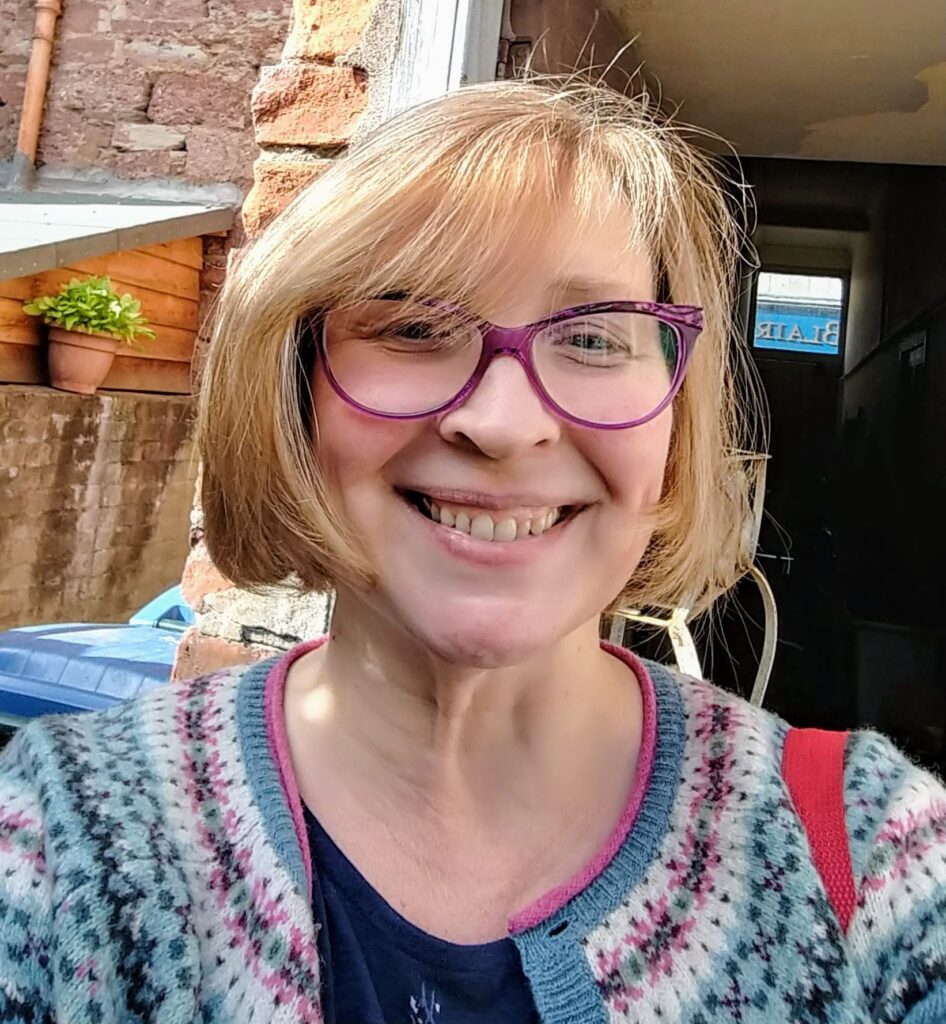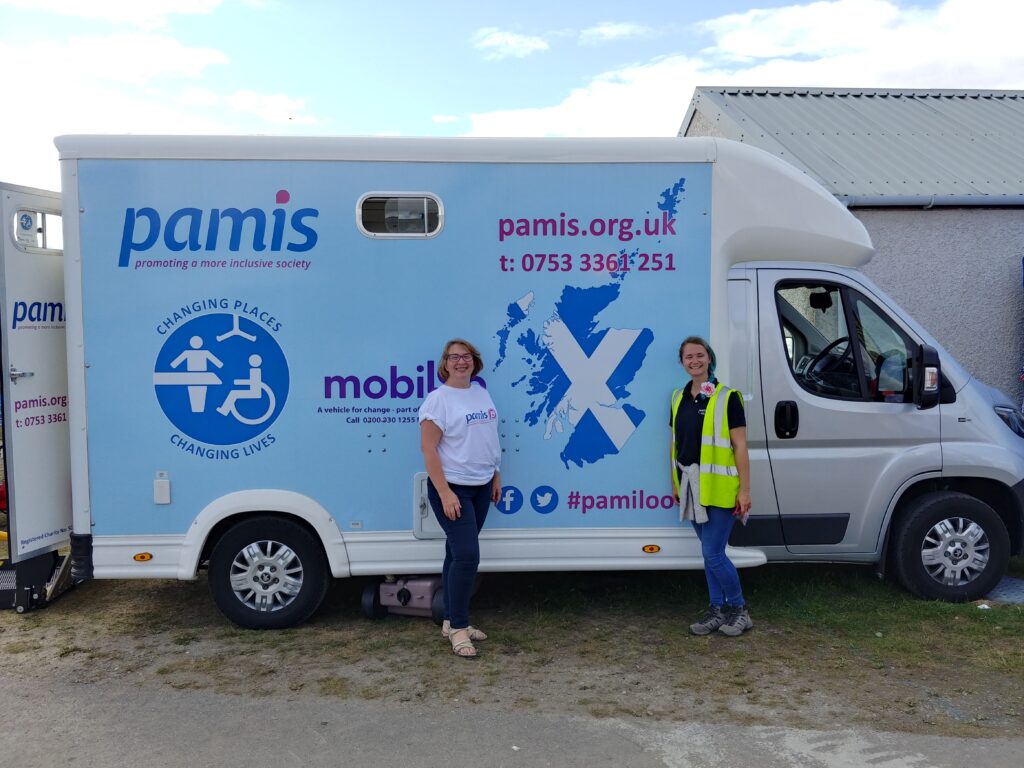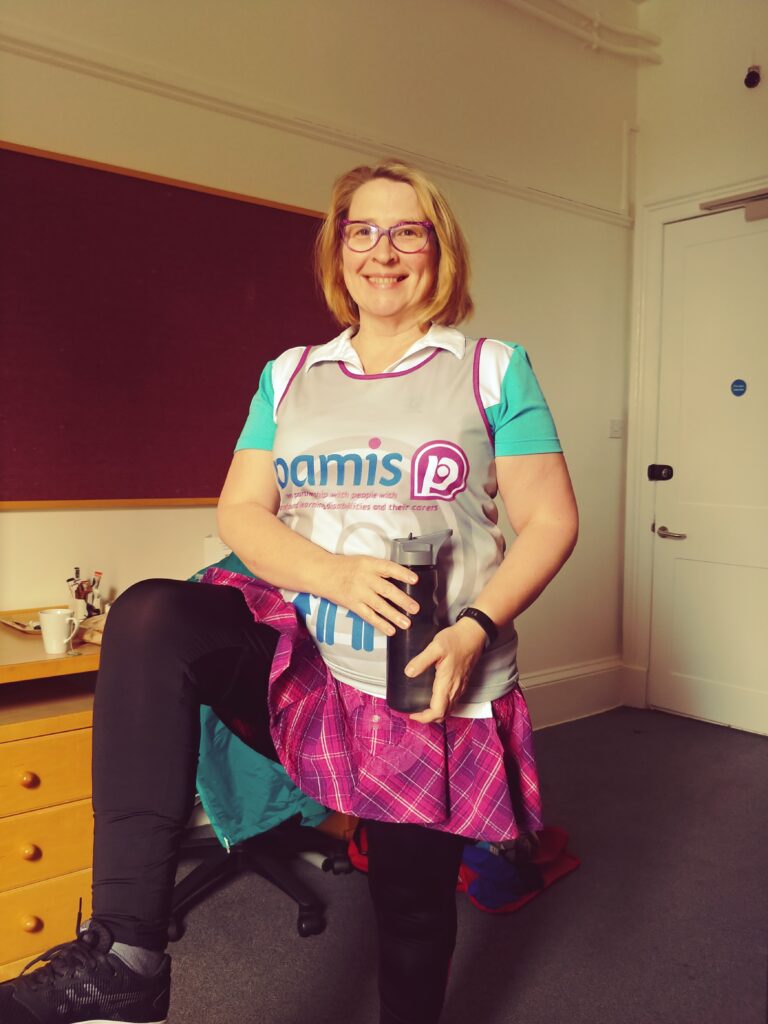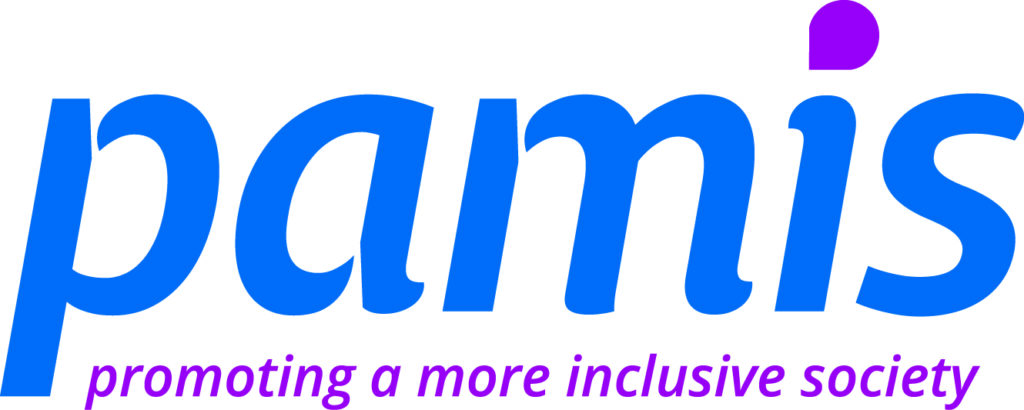Cat Jamieson is a Community Learning Disabilities Nurse, Epilepsy Nurse and Digital Lead, working for PAMIS (Promoting A More Inclusive Society). Cat is also one of the nurses selected for the 2021 Learning Disability cohort. PAMIS are a charity working solely with people who have profound learning disabilities and multiple complex needs, their family carers, and the practitioners that support them. When approached to write a blog for QNIS Cat was enthusiastic but warned that her role was as complex and varied as you can get. This is her journey.
 As a frame of reference, people with profound learning disabilities and complex needs require support in all aspects of their care, 24/7. They need help to ensure that their needs are conveyed to a multitude of different carers and that they are met across multiple locations. But those underlying needs are the same as everyone else’s- to be understood using their own language, to have appropriate, safe access to health and social care and to have their voices heard and understood. We all need and expect to have our human rights met, to have access to social opportunities and the chance to make real friendships, people with profound learning disabilities just need more support to ensure those needs are met. Those without a profound learning disability can struggle to meet those needs. Acknowledging this isn’t a judgement on clinical expertise. Learning how to work meaningfully and appropriately with anyone takes time and effort.
As a frame of reference, people with profound learning disabilities and complex needs require support in all aspects of their care, 24/7. They need help to ensure that their needs are conveyed to a multitude of different carers and that they are met across multiple locations. But those underlying needs are the same as everyone else’s- to be understood using their own language, to have appropriate, safe access to health and social care and to have their voices heard and understood. We all need and expect to have our human rights met, to have access to social opportunities and the chance to make real friendships, people with profound learning disabilities just need more support to ensure those needs are met. Those without a profound learning disability can struggle to meet those needs. Acknowledging this isn’t a judgement on clinical expertise. Learning how to work meaningfully and appropriately with anyone takes time and effort.
My family circumstances meant I came late to nursing. My sister and I were my mother’s family carers and it was seeing her experience that inspired me. I saw the difference that informed care and access to basic support tools made. All this provided by nurses. For my mother, it meant the difference between feeling valued and feeling disregarded or disenfranchised. I found school difficult and my grades didn’t meet the entry requirements for nursing. I wasn’t dissuaded, I knew could ‘talk’ a good essay, the trick was just going to be writing in it down.
I chose learning disability nursing because of the diversity of approach and potential breadth of practice that it encompassed. It spoke to my own interests and way of working.
I was fortunate to be in the generation that saw computer technology move from the elite into the mainstream. There was an impetus to ensure that Scotland had a computer literate workforce and I also benefited from the network of support organisations and charities set up within the council housing estates I lived in during the 80s and 90s. led to training positions and work that addressed inequalities within technology. It was an exciting time where people were starting to realise they had skills that they didn’t know they had! Helping others to develop those skills, their social advocacy and the opportunity to bounce ideas around helped me to develop my own aims and values, and I kept coming back to nursing. I chose learning disability nursing because of the diversity of approach and potential breadth of practice that it encompassed. It spoke to my own interests and way of working. My passion and determination to work with people who have long-term conditions, profound learning disabilities and complex needs was underpinned by the help I had seen delivered by PAMIS, and my daughter, a mental health nurse. Even as a late starter I was encouraged to undertake formal, degree level training and I inched my way towards the entry qualifications using online learning. I gained a place on the degree course and graduated three years later with distinction. Picking up a diagnosis of dyslexia and neurodiversity in the process I finally eased up on blaming myself for not trying hard enough. I have started to use my creativity and talents in a meaningful way. The boost it provided has been indescribable, life became less tiring!
 I started working with PAMIS on the Grampian Digital Passport project in 2016. The first thing that you have to understand about PAMIS is that everything the charity does is led by people with profound learning disabilities and their carers- usually their family carers. My role as a Learning Disabilities Nurse within PAMIS is no different. This has the effect of making any work that is undertaken within PAMIS very practical and applicable to the people it intends to support. It’s also incredibly humane, relevant and interesting work – you get to build strong long-term relationships with people. The trust this builds and the opportunities given to the staff team by family carers ensures that everyone on the PAMIS team learns continuously. The people we work with show us how to reflect and work on the excellence of our practice and relevance of our work every minute of every day, their feedback is honest and unedited, and if you get it right for them, you have the transferrable skills to get it right for far broader groups of people. It is these relationships that mean that I can fulfil my obligations as a Learning Disabilities Nurse, making sure that my practice is congruent with the 4 Pillars of Practice and that I am continuously working in a knowledgeable and beneficial way.
I started working with PAMIS on the Grampian Digital Passport project in 2016. The first thing that you have to understand about PAMIS is that everything the charity does is led by people with profound learning disabilities and their carers- usually their family carers. My role as a Learning Disabilities Nurse within PAMIS is no different. This has the effect of making any work that is undertaken within PAMIS very practical and applicable to the people it intends to support. It’s also incredibly humane, relevant and interesting work – you get to build strong long-term relationships with people. The trust this builds and the opportunities given to the staff team by family carers ensures that everyone on the PAMIS team learns continuously. The people we work with show us how to reflect and work on the excellence of our practice and relevance of our work every minute of every day, their feedback is honest and unedited, and if you get it right for them, you have the transferrable skills to get it right for far broader groups of people. It is these relationships that mean that I can fulfil my obligations as a Learning Disabilities Nurse, making sure that my practice is congruent with the 4 Pillars of Practice and that I am continuously working in a knowledgeable and beneficial way.
One of my main areas of work is in supporting people to develop their PAMIS Digital Passport, a simple, informative, flick-through e-book that takes a multimedia approach to communication. People who have profound learning disabilities frequently communicate in ways that are unfamiliar to those they communicate with and this can lead to misunderstanding, lost opportunities and misaligned care. The passport, which is owned by the person acts as a translation tool. It uses pictures, audio, text and video to augment communication and ensure safe and accurate care takes place. They allow someone to carry their story with them across multiple care locations and help them to share that with others in an accessible way. Supporting people to lead in their own care is fundamental to what I do. Through PAMIS I’ve been given the opportunity and encouragement to work with Nursing Leads, Scottish Government, Digital Leads, Education Leads and senior Allied Health Professionals to ensure the use of the passport in practice. This, in turn, allows people with profound learning disabilities to teach others how to support them respectfully and appropriately. It’s also incredibly rewarding, and great fun!
I feed information and support into several other projects, partly from a nursing perspective but also from a digital and training perspective. Making resources accessible to carers, staff and people with profound learning disabilities by using a digital approach has become vital during Covid-19. Most recently I’ve been working alongside colleagues- PAMIS staff, practitioners, and family carers, on developing online training resources around Postural Care- ensuring that people who have atypical body shape are supported against deterioration. Similarly, I’ve been working with my colleagues, practitioners and family carers to develop further resources around Multisensory Story Telling – a way of connecting with people with profound learning disabilities that can be as simple on the surface as telling a story, but can be as profound as supporting someone meaningfully through trauma and grief.
 One of the roles I’ve most recently taken on is that of Specialist Epilepsy Nurse having achieved the course outcomes this year. We’ve started to develop our PAMIS specialist epilepsy service in partnership with parents and practitioners. This is something that the PAMIS parents say they have needed for some time. Alongside this, I’m involved in several national pieces of work with Scottish Learning Disabilities Nurse Leads, Education Leads and Digital Leads, including the improvement of access to health checks for people who have a learning disability, and developing student practice around supporting people with profound learning disabilities. All of these fundamental health improvements have a profound effect on the ability of individuals to live meaningfully and well within the community and are a part of everyone’s rights as a human being.
One of the roles I’ve most recently taken on is that of Specialist Epilepsy Nurse having achieved the course outcomes this year. We’ve started to develop our PAMIS specialist epilepsy service in partnership with parents and practitioners. This is something that the PAMIS parents say they have needed for some time. Alongside this, I’m involved in several national pieces of work with Scottish Learning Disabilities Nurse Leads, Education Leads and Digital Leads, including the improvement of access to health checks for people who have a learning disability, and developing student practice around supporting people with profound learning disabilities. All of these fundamental health improvements have a profound effect on the ability of individuals to live meaningfully and well within the community and are a part of everyone’s rights as a human being.
Working with PAMIS has enabled me to link in and share the knowledge and experience of a huge number of people. Mentors have been incredibly generous with their time and resources. I left my nursing studies with a fairly fixed idea of what I wanted to do but it still took good leadership, canny persuasion and positive mentorship to identify my skills and create opportunities. These opportunities have set me on the road to becoming the practitioner I aspire to be. Every day I strive to be worthy of the trust placed in me by the greatest mentors of all, the people with Profound Learning Disabilities and their family carers.

- PAMIS website: http://pamis.org.uk/
- PAMIS digital passports: http://pamis.org.uk/news/news/passports-for-all-pamis-digital-passports-covid-19-offer/
- Multisensory storytelling resource: http://pamis.org.uk/services/multi-sensory-storytelling/
- Postural care resource on TurasLearn: https://learn.nes.nhs.scot/29658/allied-health-professions-ahp-learning-site/resources-to-support-your-practice/postural-care